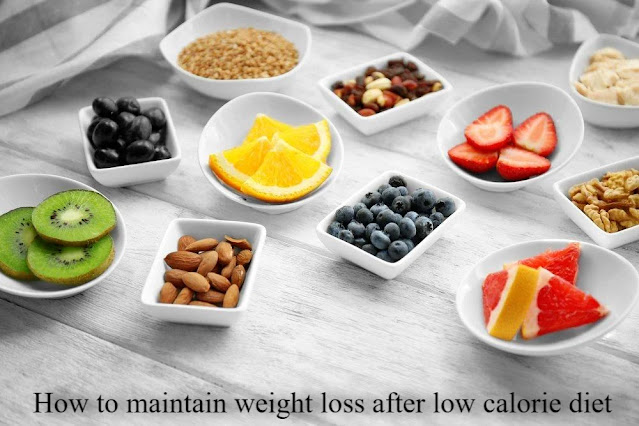Maintaining weight loss after a low calorie diet can be challenging, but it is possible with the right approach. Here are some tips that may help:
1. Gradually increase your calorie intake
After a low calorie diet, it may be tempting to return to your previous eating habits and calorie intake. However, this can lead to weight gain. Instead, try gradually increasing your calorie intake over time to give your body time to adjust.
2. Focus on nutrient-dense foods
While losing weight, it's important to focus on eating nutrient-dense foods that provide a lot of nutrients and fiber in fewer calories. These include vegetables, fruits, whole grains, lean proteins, and healthy fats.
3. Incorporate physical activity
Regular physical activity can help you maintain your weight loss. Aim for at least 150 minutes of moderate-intensity activity or 75 minutes of vigorous activity per week.
4. Keep track of your progress
It can be helpful to keep track of your weight, measurements, and other indicators of progress to help you stay motivated and on track.
5. Don't be too hard on yourself
It's normal to have setbacks and slip-ups, especially when trying to maintain weight loss. Don't be too hard on yourself and try to get back on track as soon as possible.
Remember, it's important to make sustainable changes to your lifestyle rather than trying to follow a quick fix or crash diet. Consult a healthcare professional or a registered dietitian for personalized advice.
20 Tips For How To Maintain Weight Loss After Low Calorie Diet
1. Find a healthy and sustainable calorie intake that allows you to maintain your weight. This may be different from the calorie intake you followed during your weight loss journey, so it's important to reevaluate and adjust as needed.
2. Incorporate physical activity into your daily routine. This can help you maintain your weight by burning additional calories and boosting your metabolism.
3. Eat a balanced and varied diet that includes plenty of fruits, vegetables, whole grains, and lean proteins.
4. Avoid sugary and high-fat foods, and limit your intake of alcohol.
5. Practice mindful eating by paying attention to your body's hunger and fullness cues.
6. Plan ahead and make healthy food choices when eating out or when faced with tempting foods.
7. Drink plenty of water to stay hydrated and help control your appetite.
8. Get enough sleep, as insufficient sleep can lead to weight gain.
9. Find ways to manage stress, such as through exercise, meditation, or talking to a therapist.
10. Eat regular meals and snacks to help control your hunger and keep your metabolism running smoothly.
11. Don't skip meals, especially breakfast, as this can lead to overeating later in the day.
12. Don't rely on diet pills or other quick fixes to maintain your weight loss. These approaches are not sustainable and can have negative side effects.
13. Seek support from friends, family, or a support group. Having a supportive network can help you stay on track and motivated.
14. Measure your progress regularly, such as by tracking your weight and body measurements, to help you stay on track and make any necessary adjustments.
15. Be patient and consistent. Weight loss and weight maintenance require time and effort, so don't get discouraged if you don't see immediate results.
16. Find healthy ways to treat yourself, such as by indulging in a small serving of your favorite treat or by treating yourself to a relaxing activity.
17. Consider working with a registered dietitian or a certified personal trainer to help you create a healthy and sustainable plan for weight maintenance.
18. Stay positive and focus on your successes rather than any setbacks.
19. Don't be too hard on yourself if you have a slip-up. Instead, try to learn from the experience and move on.
20. Remember that weight loss and weight maintenance are lifelong endeavors. It's important to find a healthy and sustainable approach that you can stick with for the long term.
